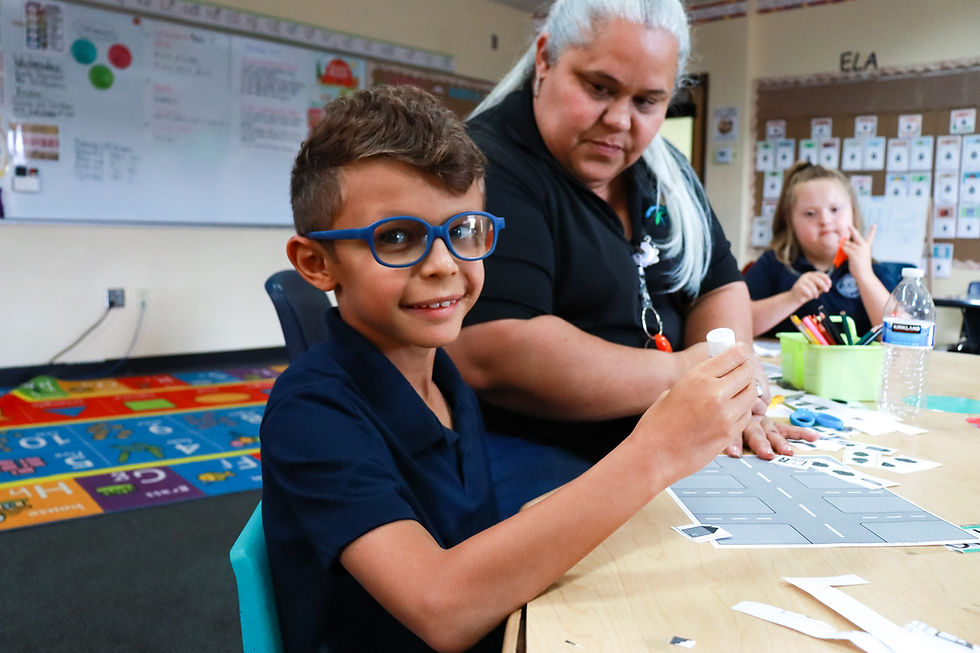Helping Your Child Set Goals for Academic Success: 5 Strategies for Parents
- UCP Charter Schools

- Mar 31, 2025
- 2 min read
Updated: Aug 27, 2025
Written by: Dr. Karyn Scott, Director of Curriculum and Instruction K12

Parents play a crucial role in shaping their child's academic success, and fostering a strong school-home partnership can enhance their learning experience. One of the most effective ways to support your child’s educational journey is by reinforcing goal-setting skills both at home and in collaboration with their teachers. When parents and educators work together, children receive consistent guidance and encouragement, helping them develop responsibility, motivation, and a sense of accomplishment. By
aligning home strategies with school expectations, you can create a supportive environment that empowers your child to set and achieve meaningful academic goals.
Here are five strategies to help you guide your child in this process!
1- Set SMART Goals Together
Encourage your child to create goals that are Specific, Measurable, Achievable, Relevant, and
Time-bound (SMART). Instead of a vague goal like “I want to do better in math,” guide them
to say, “I will practice multiplication for 15 minutes each day to improve my test scores over the
next month.” SMART goals provide a clear roadmap and make success easier to track.
2- Create a Visual Goal Board
A goal board is a great way to keep your child’s academic goals front and center. Use a
whiteboard, poster, or digital tool to display their goals, progress, and achievements. Seeing their
objectives daily serves as a constant reminder and motivation to stay on track. You can also add
stickers or rewards for milestones reached!
3- Develop a Daily and Weekly Plan
Help your child break down their goals into manageable steps by creating a structured schedule.
If they want to improve their reading skills, schedule 20 minutes of reading time each night. If
they have a big project, assist them in dividing it into smaller tasks with specific deadlines.
Consistent routines help children build discipline and avoid last-minute stress.
4- Encourage a Growth Mindset
Teach your child that mistakes and setbacks are part of the learning process. Instead of saying,
“I’m not good at this,” encourage them to think, “I haven’t mastered this yet, but I will keep
trying.” Praise their effort rather than just their intelligence to foster resilience and persistence in
their studies.
5- Celebrate Progress and Success
Recognizing achievements, big or small, keeps children motivated. Celebrate their hard work
with words of encouragement, a small reward, or a special treat. Reinforcing their progress helps
build confidence and enthusiasm for future learning goals.
By guiding your child in setting realistic and meaningful academic goals, you equip them with
essential skills for lifelong success. With your encouragement and these simple strategies, they
will learn to take ownership of their learning, stay motivated, and develop a positive attitude
toward their education. Throughout the school year, meet with your child’s teacher to help set
those goals.




Comments